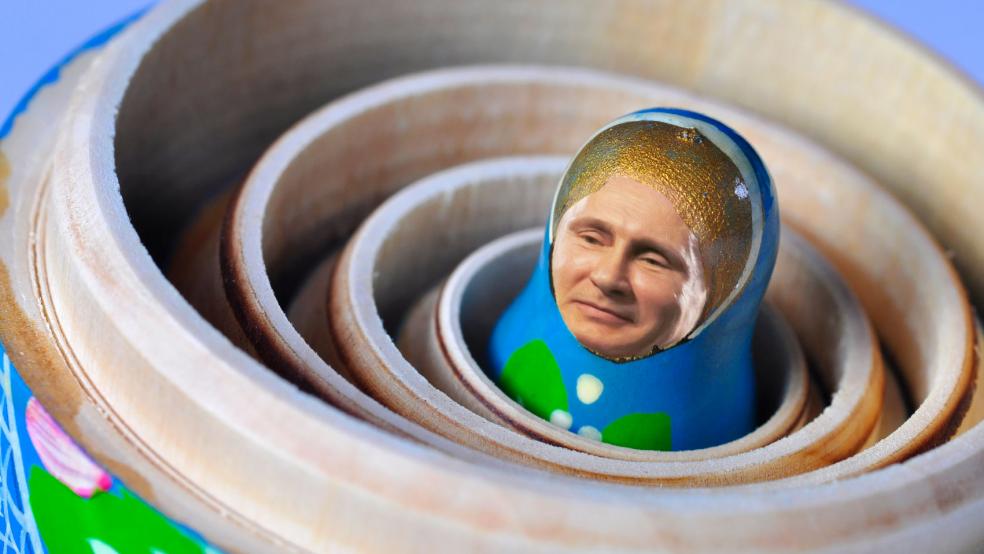Secretary of State John Kerry last month tried to explain the complexity of the decision-making process surrounding sanctions on Russia. The U.S. and E.U. have already announced very targeted sanctions against Russia as a penalty for its takeover of Ukraine’s Crimean peninsula and it’s threatening posture toward eastern Ukraine.
However, what’s been implemented so far is only a taste of what a full-on sanctions regime, such as the one imposed against Iran, might mean for the Russian economy. But in testimony before Congress last month, Kerry noted that Russia is a major player in the world economy, and said that damaging the Russian economy will also have effects on U.S. businesses operating in Russia and on U.S. exports.
Related: 12 Things You Didn’t Know About Ukraine
“If you start going down that road, it’s not just them who feel it, we’ll feel it too,” he said.
Of course, some will feel it more than others, and the irony here is that the more pressure the U.S. and its allies put on the Russian economy, the more damage it is likely to do to the countries most concerned about Russian aggression.
For argument’s sake, assume the Russian economy goes into severe recession and, as a result, demand for imports drops. According to data collected by the Massachusetts Institute of Technology’s Observatory of Economic Complexity, the likely impact on the U.S. would be minimal. As of 2011, the most recent data available, less than one percent of total U.S. exports went to Russia.
By contrast, some of Russia’s closest neighbors – and those most concerned about Russian President Vladimir Putin’s posture toward his former Soviet Republics – also happen to be major trade partners with the Russian Federation.
Related: For Putin, Invading Ukraine Augurs Russia’s Destiny
Ukraine’s relationship with Russia has, obviously, been dramatically altered. But as of 2011, Russia accounted for 27 percent of Ukraine’s exports. Moldova, which many believe to be a potential target for Putin, sent 26 percent of its exports to Russia.
Ukraine’s northern neighbor, Belarus, stands to lose more than any other country should Russia cut back dramatically on imports, as 32 percent of its exports go there.
But the impact extends well beyond countries immediately within the Russian sphere of influence.
Estonia, Latvia, and Lithuania, three former Soviet Republics that are now part of the North Atlantic Treaty Organization (NATO), are likely in no danger of Russian invasion because of the treaty obligations that commit the U.S. and other major power to their defense. However, Latvia relies on Russia as a customer for nine percent of its exports, and Lithuania and Estonia each send 14 percent of their exports to the Russian Federation.
Related: Russia’s Military Bear Is a Paper Tiger
Major European powers also smaller, but non-trivial, levels of exports to Russia. Germany and Italy send 3 percent of their exports there, and France sends two percent. Not huge numbers, but in the difficult economy Europe is facing, even small declines in demand can have a real impact.
The likelihood that further sanctions will have an impact is hard to deny. In a report issued Tuesday, the International Monetary Fund said the Russian economy has run into a brick wall as a result of the crisis in Ukraine.
“The Russian economy, already slowing because of pre-existing structural bottlenecks, has been further affected by geopolitical uncertainties arising from conflict between Russia and Ukraine,” the report said. “Growth is expected to ease to 0.2 percent in 2014, with considerable downside risks.”
Further, the IMF said, “In 2014, Russia’s growth is expected to continue its slowing trend to 0.2 percent, from 1.3 percent in 2013. Investment will further contract due to the uncertainty around the geopolitical situation. Capital outflows increased significantly in Q1 2014 to US$ 51 billion.”
Additional sanctions on Russia will no doubt increase the pressure and the pain on Putin. But neither will be limited to the country the sanctions target.
Top Reads from The Fiscal Times
- FCC Move Seen as Disaster for Online Start-Ups
- The Man Pushing CEO Pay to the Stratosphere
- 10 Restaurants That Made the “Dirty List”





